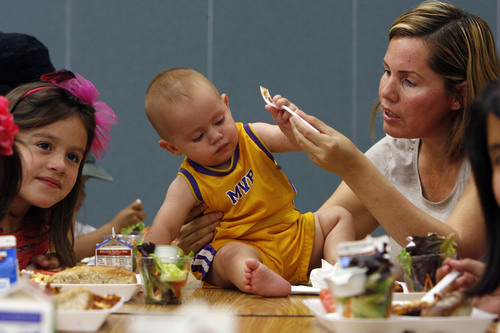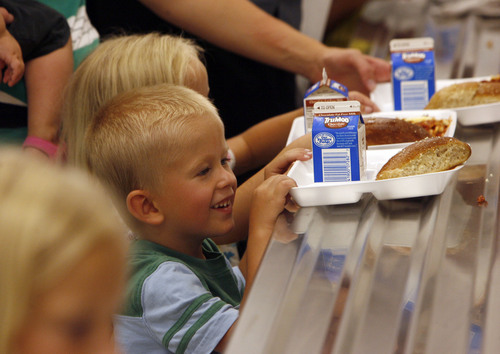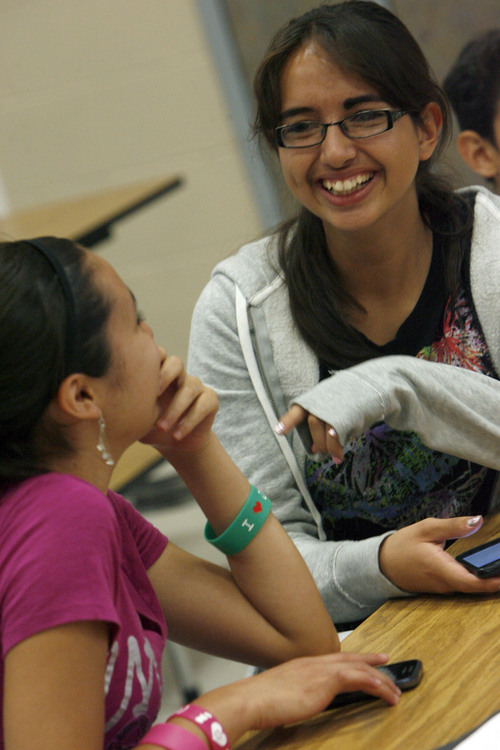This is an archived article that was published on sltrib.com in 2013, and information in the article may be outdated. It is provided only for personal research purposes and may not be reprinted.
Bribing kids to eat their greens may not sound like great public policy, but new research from Brigham Young University suggests it might work.
A federal overhaul of public school lunches is putting an additional $5.4 million in fresh fruits and vegetables on kids' plates every day. But many parents won't be shocked to know that kids throw away 70 percent of that extra healthy stuff, according to researchers' observations of three Utah schools.
That's about $3.8 million going in the trash can daily, the researchers from BYU and Cornell University found, for a paper published in the December issue of Public Health Nutrition.
"We saw a minor increase in kids eating the items, but there are other ways to achieve the same goal that are much, much cheaper," BYU economics professor Joe Price said in a statement.
They decided to test whether giving kids an incentive to clean their plates might help. The professors went to 15 Utah schools in the Nebo and Provo school districts for a week each, offering small rewards such as a nickel, quarter or a raffle ticket.
They found the rewards increased fruit and veggie consumption by 80 percent over the weeklong experiment, according to a paper published in the Journal of Human Resources. It also shrunk by 33 percent the amount wasted.
The bad news? When the weeklong experiments ended, the kids went back to eating the same amount of fruits and vegetables.
Now Price and co-author David Just of Cornell are studying whether extending the experiment to three to five weeks could make the results last longer.
"I don't think we should give incentives such a bad rap," Price said. "They should be considered part of a set of tools we can use."









